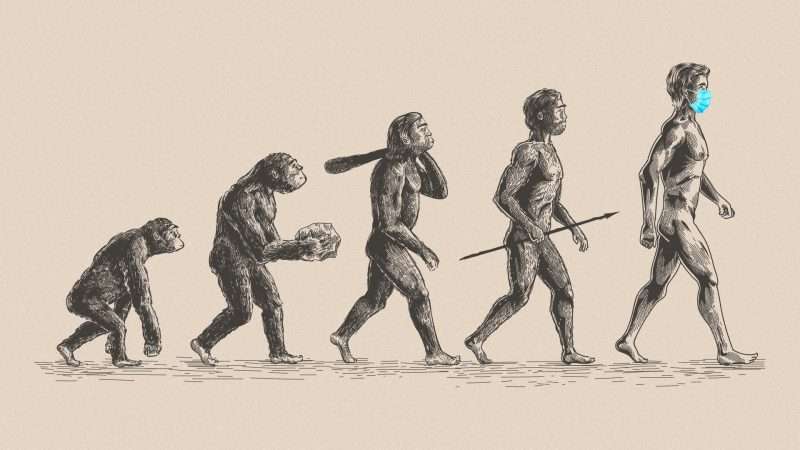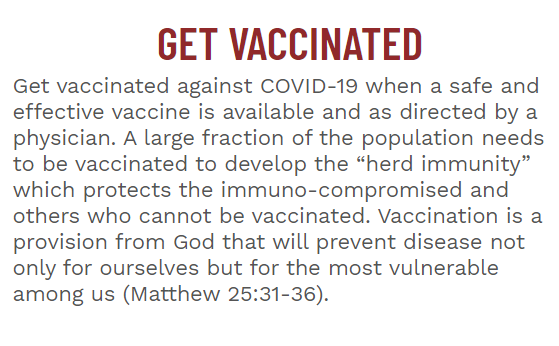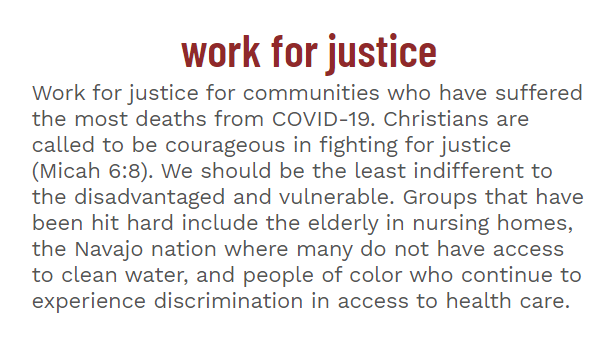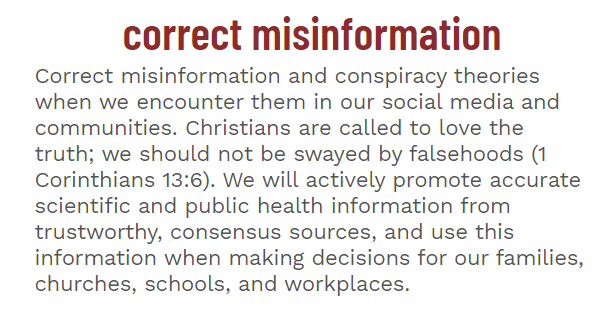Biologos, the self-described “Christian organization” that seeks to bridge the bible and evolution while insisting that humans evolved from apes 200,000 years ago and that Adam and Eve never actually existed, released A Christian Statement on Science for Pandemic Times, urging signatories to declare that they trust the consensus of scientists and will follow their recommendations for battling the novel coronavirus, which includes wearings masks, getting vaccinated, fighting misinformation and working for justice.
Initial signatories on the statement include a few prominent names, such as the president of Biologos, Deborah Haarsma, the editor in chief at Christianity Today, Daniel Harrel, Phillip Yancey, N.T. Wright, the president of the National Association of Evangelicals Walter Kim, Scott McKnight, and a couple more thousands of people who may or may not be of note.
A few interesting portions of the statement read:
-We call on all Christians to follow the advice of public health experts and support scientists doing crucial biomedical research on COVID-19.
-Christians should listen to scientists and doctors when they speak in their area of expertise, especially when millions of lives are at stake.
-The word ‘science’ has become a weapon in the culture wars. Scientists are vilified and their findings ignored, while conspiracy theories go viral. Sadly, Christians seem just as susceptible to these trends. Thoughtful Christians may disagree on public policy in response to the coronavirus, but none of us should ignore clear scientific evidence.
-Experts have been communicating their knowledge in real time as the pandemic progresses, which has led to some confusion. In the early days, they advised the public against masks when supplies were needed for healthcare workers, but later they changed their message in response to more data.
-When Dr. Fauci, the nation’s leading infectious disease expert, tells us what scientists have learned about this infectious disease, he should be listened to.
-Our faith calls us to sacrifice ourselves for others and accept temporary limitations on our freedoms because we have a permanent and complete freedom in Christ (Hebrews 10:34)
-Even closer to our hearts is the impact of quarantine on church fellowship. As churches reopen, Christians need to balance God’s call to meet together with God’s call to protect the vulnerable among us.
The Statment leaves many questions, such as is the consensus of the scientists really clear and universally agreed to? Has there been a report released showing that the scientists are overwhelmingly agreed on what much be done? What of countries like Sweden who’s scientists and governing bodies have advised against wearing masks and social distancing, but rather have used a different model to great success? Should someone follow scientists in their own country, or other countries as well?
What about when the scientists at WHO, CDC, or even Dr Faucci have been very, very wrong? What of following the advice of public health experts engaging in draconian measures? What of the fact that sometimes what may be in someone’s “best interest” “scientifically” (wearing masks, getting vaccinated) is not in someone’s best interest from a different perspective? What about the fact that is is one pathetic “pandemic” and that many of the recommendations are purely hysterical reactions?
There is also the fact that the “consensus of scientists” is frequently stupid.
We see this in the response to transgender issues, with prestigious, peer-reviewed publications telling us that the concensus of the experts is that sex and gender are just social constructs and there is no biological relation to having a penis and being a male, or having a vagina and being a female. Should we trust that consensus, or not?
The statement from Biologos then shares things that Christians must do in order to support the scientists and their conclusions, and because of one’s faith in Christ, urging action and adherence to “trustworthy, consensus sources.”
Needless to say, here at Pulpit & Pen, we will NOT be signing the statement.















